READY TO GET STARTED?
REQUEST A FREE ESTIMATE
Fill out the form below or call (888) 466-7849 for a free, no-obligation estimate.
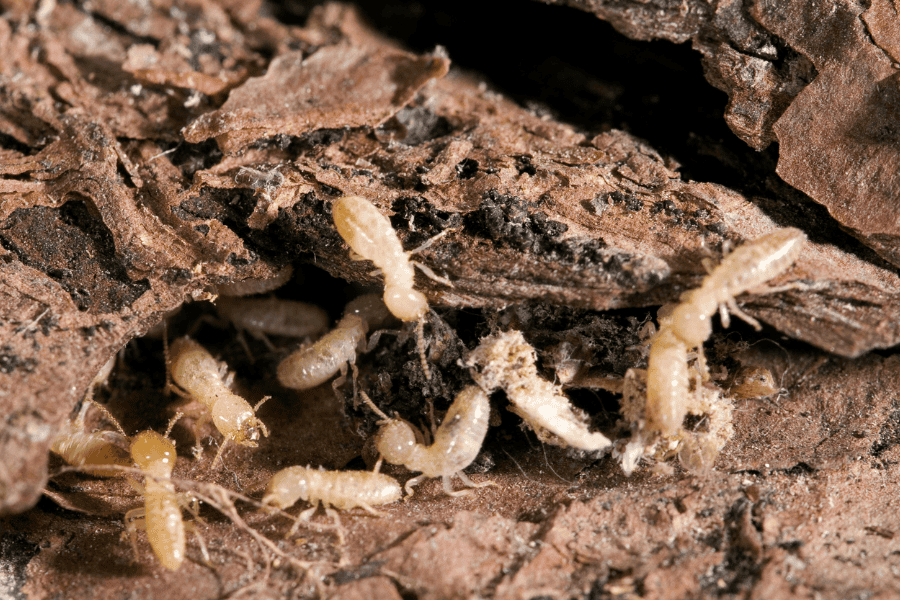
There are two common termite species Florida homeowners should know: the subterranean and drywood termite. Both termite species can cause structural damage to homes and cause thousands of dollars in repairs. One of the best ways you can avoid their damage is understanding their characteristics and the preventative measures to place around your home to deter them away. Let’s explore the differences between drywood vs subterranean termites and how you keep them from infesting your home.
Drywood termites thrive in dry wood, often infesting furniture, frames, and other wooden structures without them needing contact with soil. Once they have infested, they will cause damage by hollowing out wood from the inside out. A good indication that these termites infested your home is finding small piles of wood pellets or frass, tiny holes in wood surfaces, and discarded wings near windowsills or light fixtures.
Subterranean termites live underground and build mud tubes to reach food sources above the ground, often destroying foundations and support beams in the process. These termites need soil and moisture to survive and build their colonies. Signs of a subterranean termite infestation include finding discarded wings and mud tubes on exterior walls, foundations, or crawlspaces.
There are several preventative measures you can utilize to deter termites away from your Florida property. Let’s review do-it-yourself termite prevention tips:
While these tips will support efforts to deter termites away, it is always best to schedule an annual termite inspection with a professional termite control company near you. These professionals can detect termite signs early and quickly provide your home with the appropriate termite control and prevention plan.
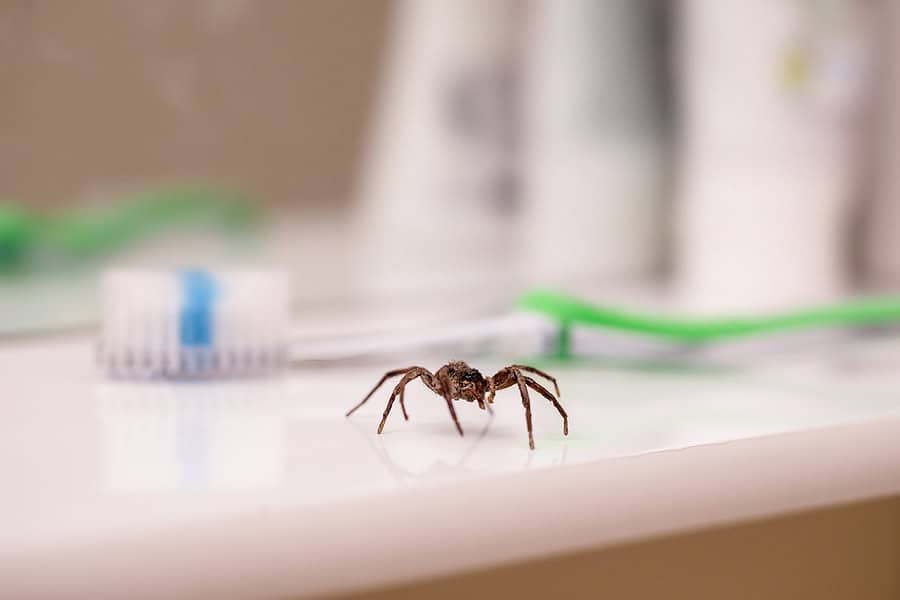
Spiders are typically harmless and even deemed beneficial by controlling other pests, but having them in your home can be alarming! We breakdown some easy do-it-yourself spider prevention tips that you can use around your Lauderhill home.
Spiders love to hide in cluttered spaces, so keeping your home clean and tidy can significantly reduce the chances of them making themselves at home. Always vacuum regularly, paying extra attention to corners, underneath furniture, and hard-to-reach areas. Look at dust surfaces and if you spot a spider web with no spider, carefully remove the web. It’s also crucial to declutter storage spaces, basements, attics, and garages. Organize items in sealed plastic containers instead of cardboard boxes, which spiders will infest.
Spiders will enter homes through the tiniest cracks and gaps. Sealing these openings will help keep them from entering. Inspect your home and check for cracks in the walls, windows, and doors. Seal any you may find as soon as possible with sealant or caulk. Ensure that your windows and vents have tight-fitting screens, replacing any damaged screens to prevent entry.
Spiders are attracted to insects, which are drawn to lights at night. Look to reduce outdoor lighting to minimize spider activity. Replace white bulbs with yellow bulbs, as insects are less attracted to it. Additionally, consider utilizing timed outdoor lights to avoid them staying on overnight and attracting insects.
Your yard is the first line of defense to discourage spiders from entering your property, so it’s important to keep it well-maintained. Keep shrubs, trees, and other plants trimmed and pointing away from your home. Clear out leaves, unused woodpiles, and debris that spiders can hide in. If you use mulch, avoid placing it near your foundation so it doesn’t provide a habitat for spiders and other pests.
Keeping an eye out for early signs of spider activity will help you address the issue before it becomes a full-blown infestation. Make sure to regularly inspect areas like closets, basements, and garages for webs and spiders.
If you notice a significant spider problem, it’s always best to call a pest control company near you to help. These professionals will provide you with a comprehensive inspection and the best pest control plan for your situation.
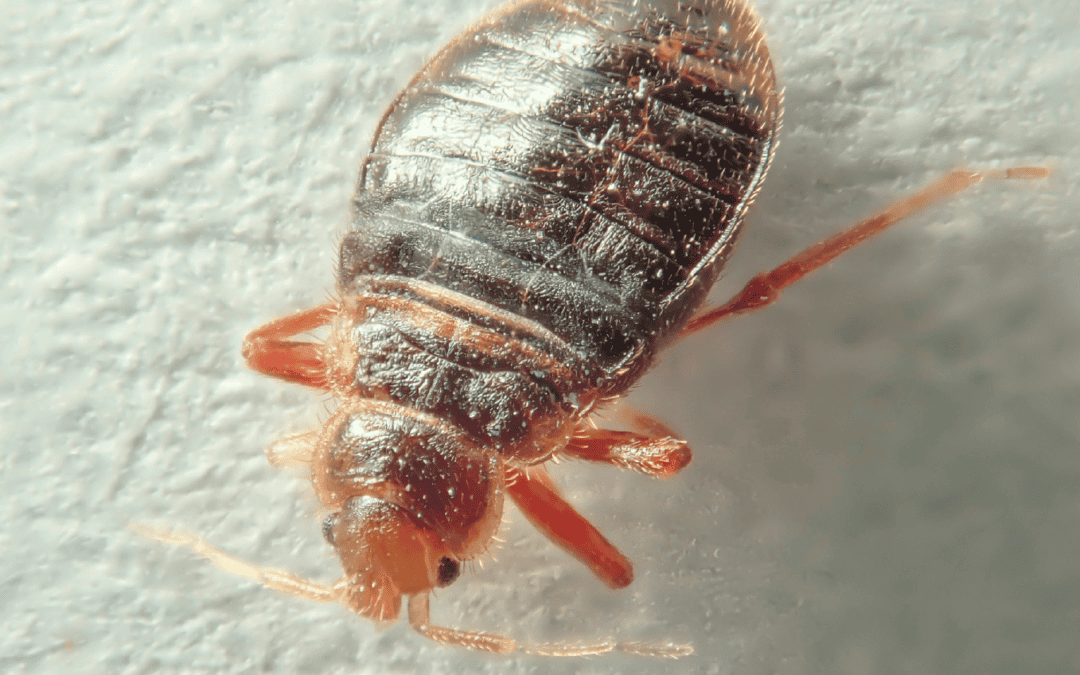
Bed bugs are a common nuisance in Georgia, affecting homes, hotels, and even public transportation. As a leading pest control company, we understand the frustration and discomfort these pests can cause. In this blog, we will explore effective bed bug treatment solutions, how to identify signs of bed bugs, recognize bed bug bites, and understand the various types of treatments available.
Before diving into treatment methods, it’s crucial to confirm if you have a bed bug infestation. Here are some key signs to look for:
Bed bug bites can be mistaken for other insect bites or skin conditions. Here’s how to differentiate them:
If you suspect bed bug bites, it’s essential to inspect your sleeping area for other signs of infestation.
Effective bed bug treatment requires a comprehensive approach. Here are some common methods:
When dealing with a bed bug infestation, it’s crucial to treat your home thoroughly. Here are steps to follow:
Once you’ve treated your home, preventing future infestations is key:
Dealing with a bed bug infestation can be stressful, but with the right approach, you can effectively eliminate these pests and prevent future problems. Understanding how to identify signs of bed bugs and recognizing bed bug bites are the first steps. Exploring various treatment methods, from chemical treatments to high heat solutions, will help you find the best approach for your situation.
Remember, hiring a professional pest control company is often the most efficient way to handle bed bug control. We are equipped with the knowledge and tools to treat your home safely and effectively, ensuring you can sleep soundly once again.
If you suspect a bed bug infestation, don’t hesitate to contact us. Our expert team is here to provide you with the best bed bug treatment solutions and restore your peace of mind.
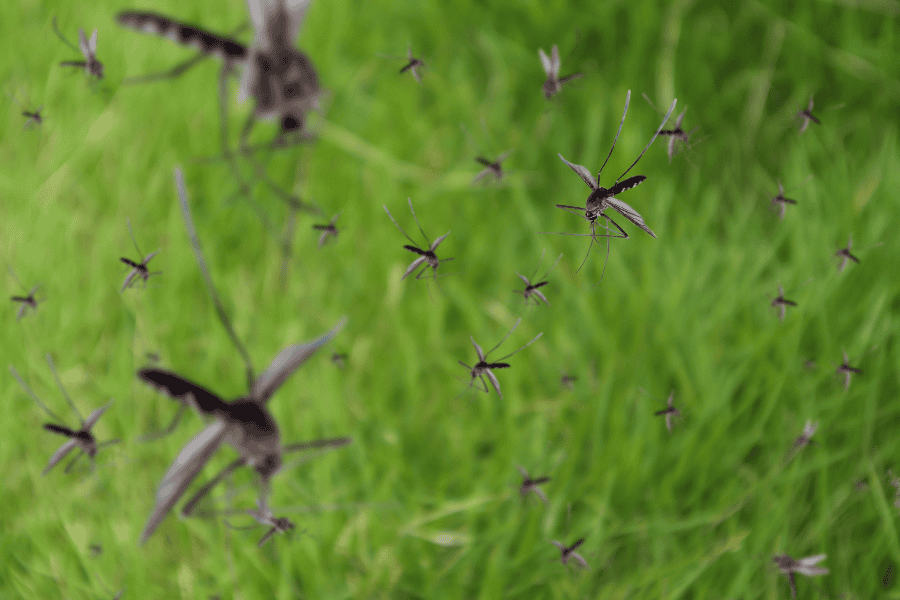
Mosquitoes can quickly turn a pleasant evening in your yard into an itchy nightmare! These pesky bugs thrive in Florida’s warm, humid climate, and can often be active almost year-round! One of the best ways you can avoid their infestation is placing easy, do-it-yourself preventative measures throughout your property to avoid them! Here are some of our favorite strategies to reduce mosquitoes around your Florida property.
Mosquitoes need standing water to breed and need only a cap-sized amount of water to do so. It’s important to eliminate any standing water throughout your home. Look to remove items from your yard that can hold water, including buckets, toys, unused flowerpots, pet bowls, etc. Likewise, fix any leaky pipes and clear your gutters of leaves and debris so they do not clog.
Your yard is the first line of defense against mosquitoes taking over your property. Mosquitoes will rest in dense vegetation, so it’s important to keep your lawn well-trimmed, bushes and shrubs pruned. Additionally, continue your lawn maintenance by mowing your grass frequently. If you store wood, look to place it at least 20 feet from your home and elevated off the ground.
Mosquitoes are small, fitting in the smallest hole or gap leading indoors. Ensure that all your windows and doors are fitted with screens to prevent them from entering the home. Likewise, for your outdoor areas, consider using mosquito nets or screens around patios and porches to avoid their infestation.
Do-it-yourself mosquito prevention can only go so far, especially if mosquitoes have infested in droves. If there has been an influx of mosquitoes on your property, consider calling a professional mosquito control company near you for help. These experts will provide you with a mosquito control plan, usually including a thorough inspection, mosquito reduction plan, treatment to eliminate adult and larva mosquitoes, and recommendations on preventing mosquitoes in the future.

If you live in Georgia, you know that the state’s warm climate and diverse ecosystems are home to a variety of wildlife, including snakes. Encountering a snake in your yard or home can be unsettling, but knowing how to handle the situation safely is crucial. This guide will provide you with essential information on what to do if you come across a snake, how to identify venomous and nonvenomous snakes in Georgia, how to practice safe snake removal, and prevent snakes from entering your property.
Georgia is home to both venomous and nonvenomous snakes. Here are key identifiers:
If you’re dealing with a snake problem and need professional help, search for “snake removal near me” to find a trusted wildlife control company in your area. These experts can safely and humanely remove snakes from your property and provide advice on preventing future encounters.
Encountering a snake can be a frightening experience, but with the right knowledge and precautions, you can handle the situation safely. Remember to stay calm, keep your distance, and contact professionals for help with snake removal. By taking steps to prevent snakes from entering your property, you can reduce the likelihood of future encounters. Stay vigilant, and don’t hesitate to reach out to wildlife control companies for expert assistance in managing your snake problem.
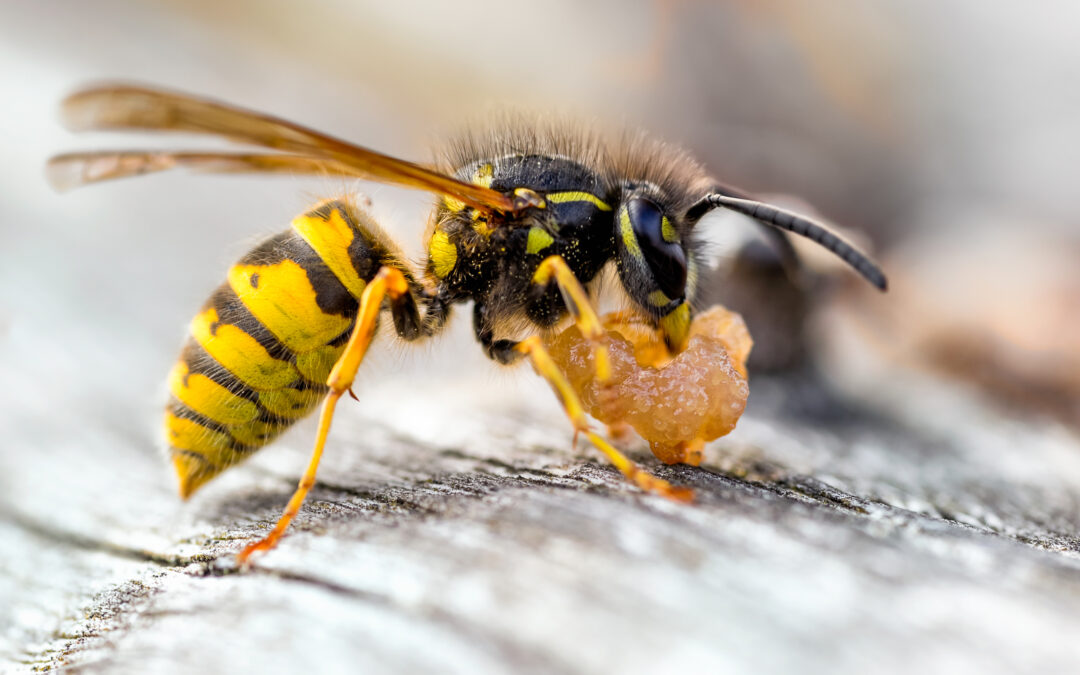
Living in Florida can come with great perks – gorgeous beaches, vast landscapes, and a warm, tropical climate to enjoy practically year-round, though this climate also invites some unwelcome guests: stinging pests. From wasps to fire ants, these pests can turn your outdoor fun into worry. In this blog, we breakdown your guide to common stinging pests and how to keep them at bay!
Keep your lawn trimmed and free of debris. Stinging insects will often nest in overgrown areas throughout your property. Additionally, trim back trees and bushes, and remove piles of leaves or wood. Place any stored lumber 20 feet from your home and raise it off the ground.
Wasps and other pests are attracted to food waste, so it’s crucial to dispose of it properly. Make sure your trash bins are sealed tightly and clean them regularly to prevent odors that attract pests. Wasps love the sugary liquids that are left behind in soda cans, so make sure your recycling bins are secure and clean too.
Inspect your home for any openings where pests could enter. Repair screens and doors, and seal gaps around pipes and cables with steel wool or caulk, depending on the size.
Controlling stinging pests on your own can be very risky and it’s always best to deal with these pests by calling a Naples pest control company near you. These pest control professionals are trained to know how to handle and remove these pests safely.
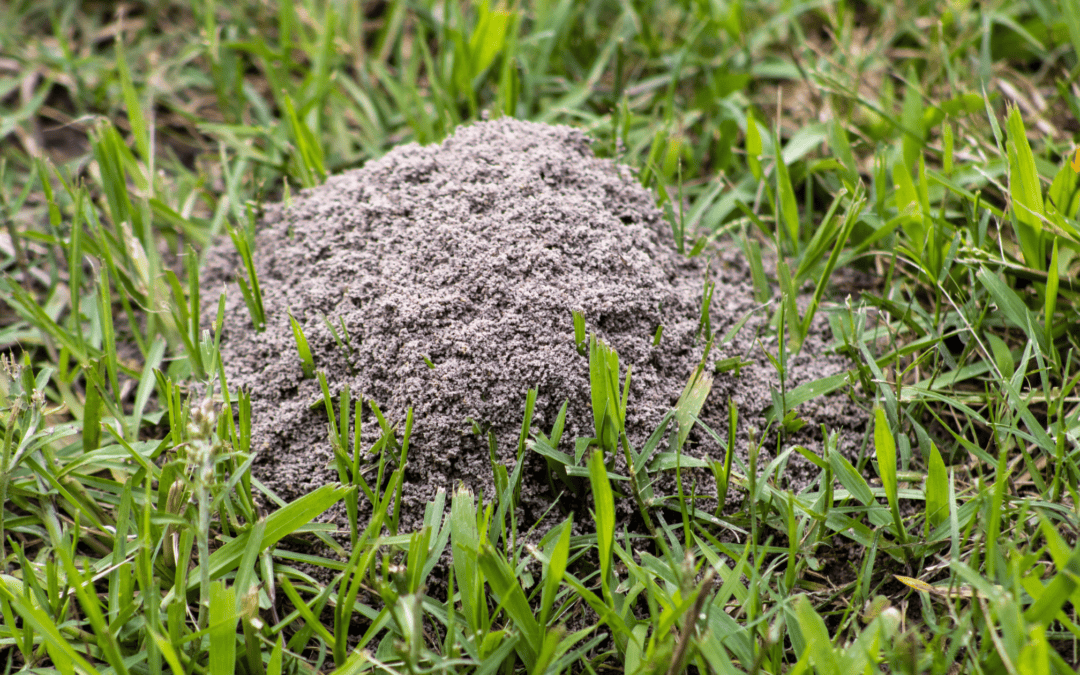
If you live in Georgia, you’re likely familiar with the nuisance of fire ants. These tiny terrors can turn a peaceful yard into a hazardous area, causing pain and discomfort with their bites. Understanding how to identify, control, and prevent fire ants is crucial for maintaining a safe and enjoyable outdoor space. This blog will guide you through the process of detecting fire ants, understanding why they’re harmful, and taking effective measures to control them.
Fire ants, particularly the red imported fire ants, are notorious for their painful bites and aggressive behavior. When disturbed, these ants sting multiple times, injecting venom that causes burning pain, itching, and sometimes severe allergic reactions. For individuals with allergies, their bites can be life-threatening and require immediate medical attention.
Beyond their painful stings, these ants pose significant threats to pets, livestock, and wildlife. They can damage crops and invade electrical equipment, causing costly repairs. Thus, managing fire ant infestations is essential not only for personal comfort but also for protecting your property and health.
Fire ants typically nest in sunny, open areas. They prefer well-drained soils and are commonly found in lawns, parks, fields, and pastures. Their nests, or mounds, are usually dome-shaped and can reach up to 18 inches in height. These mounds have no central opening like other ant hills; instead, the ants enter and exit through underground tunnels. In the southeastern United States, including Georgia, these ant mounds are particularly common due to the region’s warm climate.
Identifying a fire ant infestation early can prevent a small problem from becoming a large one. Here are some telltale signs that you might have them in your yard:
If you’ve confirmed the presence of this type of ants, taking immediate action is crucial. Here are effective methods to get rid of fire ants:
Preventing these aggressive ants from invading your yard is always better than dealing with an existing infestation. Here are some tips to keep them at bay:
Fire ants are a significant pest in Georgia, but with vigilance and proactive measures, you can keep your yard safe. Recognize the signs of fire ants, understand why they’re harmful, and use effective methods to control and prevent infestations. For persistent issues, don’t hesitate to contact a professional pest control company for expert assistance. By staying informed and prepared, you can enjoy a fire ant-free yard all year round.
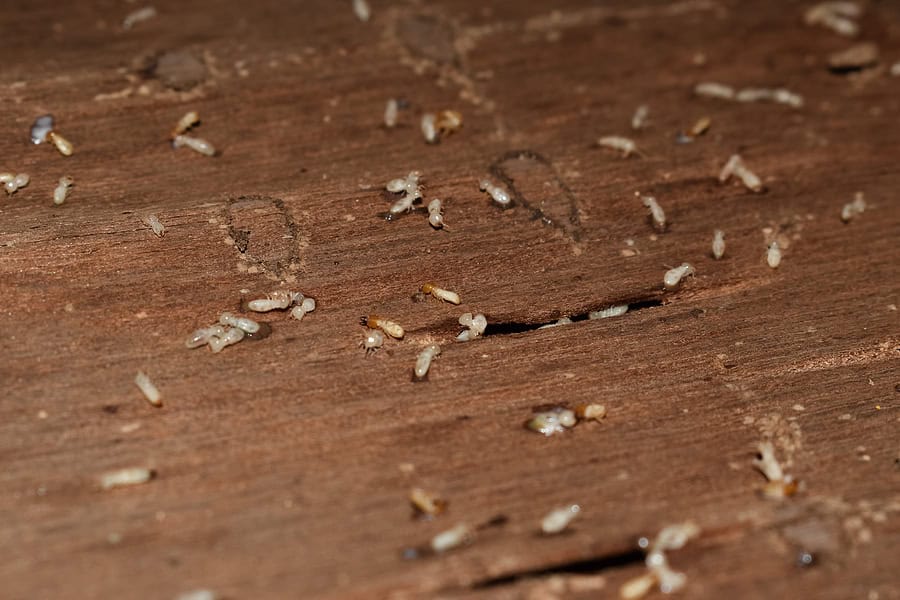
Termites thrive in warmer weather and are known to create extensive damage to your home if not managed properly. This makes Florida’s warm and humid climate a hotspot for termite activity! In our sunshine state, the most common types of termites are drywood and subterranean termites. Let’s breakdown the difference between these two termite species and how you can prevent these pests from infesting your home.
It’s important to understand the difference between drywood termites and subterranean termites to properly treat and prevent them.
There are several do-it-yourself prevention tips that you can utilize to prevent both drywood and subterranean termites. Consider the following:
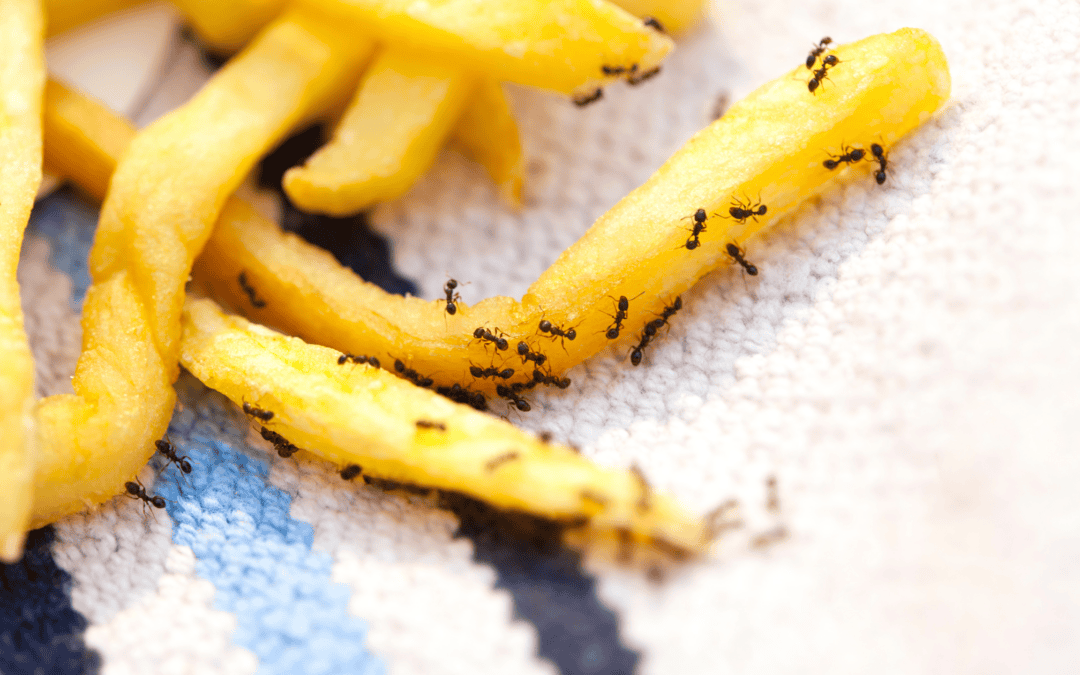
Summer is synonymous with warmth, outdoor fun, and unfortunately, pests. In Georgia, the hot and humid climate creates the perfect breeding ground for a variety of pests that can invade your home and yard. Understanding why summer is the peak season for pests, identifying common summer pests, and learning effective prevention tips are essential for maintaining a pest-free home. Here’s a comprehensive guide to help you manage and prevent summer pests.
Despite your best efforts, some pest problems require the expertise of a professional pest control company. In Georgia, where the pest population can be particularly persistent, regular pest management can make a significant difference. Here are some benefits of professional pest control services:
When searching for “pest control services near me,” look for a reputable company with positive reviews and proven results. A good pest control company will offer customized plans to suit your specific needs, ensuring your home remains pest-free throughout the summer and beyond.
Summer in Georgia brings with it an array of pests that can disrupt your home and outdoor activities. By understanding the common summer pests and taking proactive measures to prevent them, you can enjoy a pest-free summer. And remember, professional pest control services are always a reliable option to keep your home safe from unwanted invaders.